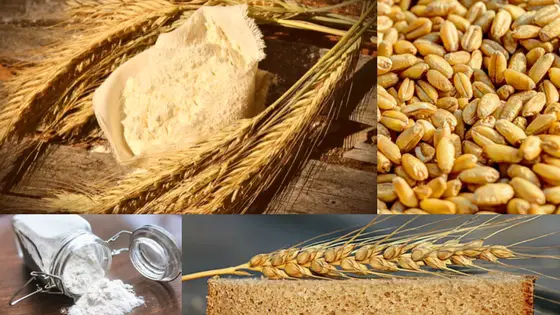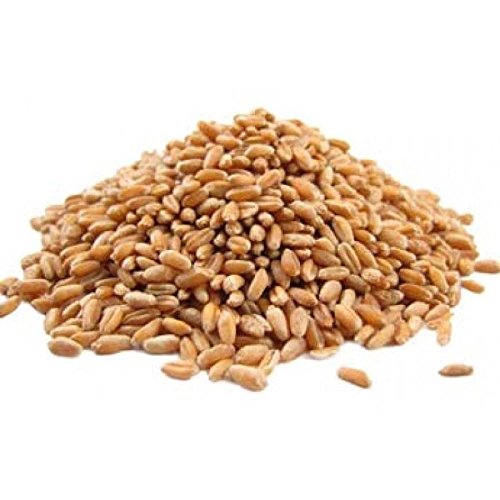 What are the top 7 advantages of making and grinding your own flour rather than just buying it? Grinding your own flour means that you have a fresher more natural flour to make things like bread or cakes with. It also has better nutrition and fewer contaminants.
What are the top 7 advantages of making and grinding your own flour rather than just buying it? Grinding your own flour means that you have a fresher more natural flour to make things like bread or cakes with. It also has better nutrition and fewer contaminants.
There are many advantages to making your own flour. These include better nutrition, better taste, convenience, health and better ingredients and less messing about with the ingredients.
All of the reasons are good ones but whether or not you decide to make your own flour depends on whether or not you think it is worth it and the advantages outweigh the disadvantages of buying flour or bread ready made.
While you can get “healthy” bread in the supermarket, just how healthy is it really? Not very according to research. The need for speed and economy have led to practices that reduce flour and bread to a filling but useless food with little nutrition for the most part.
Discover the Top 7 Reasons to Make Your Own Flour
You Can Taste the Difference
We all know just how tasty freshly baked bread is. It smells and tastes so much better than shop bought bread. So, grinding your own flour is also much better than shop bought bread and improves the taste a lot. Maybe it just feels that way but fresh is better.
The Flour That You Make Has Better Nutritional Value
I love this. Good news for all those that like white bread. According to the Wholegrains council in their FAQs, there is no difference between the nutrition of normal whole wheat and whole white wheat. I’m so happy, decent toast once again, Yay! (I like wholemeal just not as toast).
Now a lot of the trouble with our bread and flour in the shops is that it is refined and much of the goodness has been removed. bran, germ, and endosperm.
For wheat to be a whole grain it needs to have all of the following bran, germ, and endosperm. Now normal white bread and also white flour have two of these removed so only the endosperm is left. This reduces the nutritional value and the proteins. These grains then have some of the nutrition readded in the manufacturing process – some but not nearly all.
Improve Your Health by Choosing Whole Grains
 Many people say they have wheat/gluten intolerance these days. Whether it is actually an intolerance to wheat or what else goes into it is up for debate. There are very few people who are genetically disposed to gluten intolerance. For those Celiacs, of which my sister is one, eating wheat/gluten is very dangerous and can destroy their health. For the rest of us, there may be other reasons.
Many people say they have wheat/gluten intolerance these days. Whether it is actually an intolerance to wheat or what else goes into it is up for debate. There are very few people who are genetically disposed to gluten intolerance. For those Celiacs, of which my sister is one, eating wheat/gluten is very dangerous and can destroy their health. For the rest of us, there may be other reasons.
According to the Wholegrain Council, the health benefits of eating whole grains is huge. And as I quickly learned that doesn’t really apply to the “whole grains” in your local supermarket bread. These health benefits include:
A reduced risk of stroke, type 2 diabetes, heart disease, asthma, colorectal cancer & inflammatory disease. Also, there is a lower chance of getting gum disease and a loss of teeth and a better chance of weight maintenance. Yay, good news to a lot of us. You also get healthy blood pressure levels and healthier carotid arteries. You can find the complete stats on the Wholegrains Council website.
Keep Control of Your Ingredients
It has become increasingly more difficult to eat healthily due to increased interference with our food and unnecessary or manipulated ingredients. For instance, you would expect bread to have flour, yeast etc in but in addition it has either been bleached for white bread or has caramel coloring in for wholemeal or brown. A certain amount of preservatives is understandable in shop bought bread due to how long it is needed to keep. But in most bread there is Soya
Here are the ingredients for a basic bread recipe I googled and found online for this example
- 500g strong white flour, plus extra for dusting
- 3 tbsp olive oil
- 2 tsp salt
- 7g of sachet fast action yeast
- 300ml water
4 ingredients plus water
Now take the shop bought example
Fortified Wheat Flour [Wheat Flour, Iron, Calcium Carbonate, Thiamin (B1), Niacin (B3)], Water, Sourdough (7.2%) [Wheat and Rye Sourdough, Wheat Protein, Spirit Vinegar, Soya Flour, Fermented Wheat Flour , Vegetable Oils [Palm Oil, Rapeseed Oil], Salt, Spirit Vinegar, Dried Wheat Sourdough, Flour Treatment Agent (Ascorbic Acid), Salt, Wheat Starch], Yeast.
16 ingredients plus water
The reason they fortify the bread with vitamins is because they have already been removed due to the process of making the flour in the factories.
You don’t have to stick to wheat you can make other kinds of flour at a fraction of the cost. For people like my other sister who is diabetic, this is great news.
What is the Cost of Making Flour? Is it Cheaper?
I have to admit I was skeptical about the cost. Everywhere I read said it was cheaper to make your own flour than to buy it. OK, rice flour maybe as you can easily buy rice quite cheaply and grind that and rice flour is expensive in the health food shops. But what about wheat? After all, that is what most people would use. Most of the articles on costing for this are also US based and I have often found that things are cheaper from the US than the UK.
So here goes. Local UK prices.
The cost of an 800g loaf of bread for most normal wrapped non-organic brands in the UK is about £1-£1.50 per loaf. The cost of an organic 400g loaf varies from 90 pence to £1.50 Whereas the cost of our local health shop bread ranges from about £2.85-£4 per loaf.
Whole Grain Wheat for Grinding

Suma Commodities Organic Wheat Grain 25 kg
Organic Wheat Grain cost between £20-£26 per 25KG depending on what shop you buy it in.
You don’t quite get a full KG from 1 KG of wheat grain you get between 840g to 970g. So if we say you get 900g flour per KG. You are making about 22.5kg of flour for which costs at about £0.88 to £1.16 per KG which is less than half of what you would pay for a loaf of organic bread. Organic flour is about 1.75-£2.00 per KG as well so again this still works out cheaper.
Of course, you need to factor in the cooking costs as well for a complete picture.
This does not factor in the cost of the grinders which can be a lot. I will go into more depth on the grinder and other options in their own article.
You Have More Choice
You can choose your grains and have one that the shops don’t use like ancient grains like Einkorn, Emmer, Spelt and Khorason.
Ethics & Environmental Choices
When you start factoring in ingredients, ethics, and environment into the equation you are entering a minefield.
Take the example of shop bought bread, the ethics alone, Palm Oil is used, is it from sustainable sources? It didn’t actually say.
Soya Flour, is it GMO? Does it contribute to deforestation? Is it even healthy? The answers I believe are Yes, yes and no.
Actually, if you look at our local supermarket if you decide not to buy bread with Soya in you are only left with a couple of loaves one of which is gluten free.
In Conclusion
So there you have it a breakdown of many different reasons for making your own flour as opposed to buying it or a loaf of bread.
Have any of you made your own flour? If so how did you get on? If not would you consider it?
